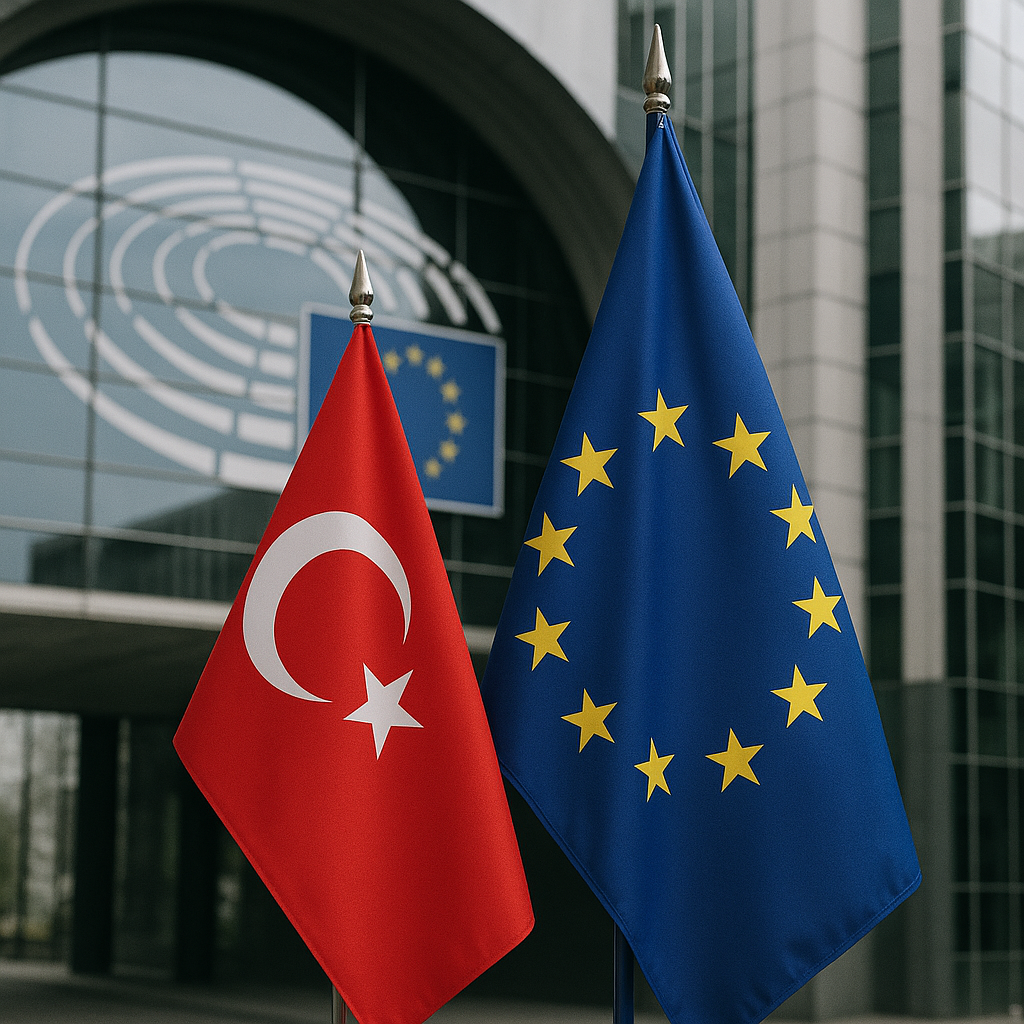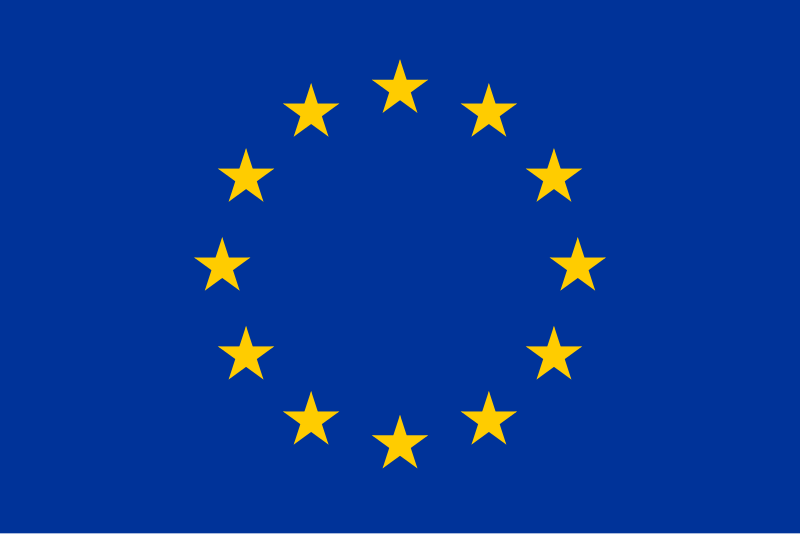Introduction
Turkey’s aspiration to join the European Union (EU) has been a significant topic in international relations for decades. As a candidate country since 1999, Turkey’s journey toward EU membership has been marked by progress, setbacks, and ongoing debates. In 2025, the question of Turkey’s EU accession remains complex, shaped by geopolitical tensions, democratic challenges, and evolving economic ties. For businesses and individuals engaging with Turkey—such as those supported by Turkish International Law & Consulting Firm—understanding these prospects is crucial for navigating opportunities in a dynamic transcontinental market. This article explores the current state of Turkey’s EU accession process, key obstacles, potential pathways forward, and implications for stakeholders.
Historical Context
Turkey’s relationship with the EU began in 1963 with the Ankara Agreement, establishing an association and setting the stage for eventual membership. In 1987, Turkey formally applied to join the European Economic Community (EEC), the EU’s predecessor. The 1995 Customs Union agreement marked a significant milestone, integrating Turkey into the EU’s single market for industrial goods. In 1999, the Helsinki Summit granted Turkey candidate status, and accession negotiations officially began on October 3, 2005.
The negotiation process is structured around 35 “chapters” covering areas such as judiciary, human rights, economic policy, and foreign relations. However, progress has been slow: only 16 chapters have been opened, and just one (science and research) has been closed. Since 2018, negotiations have been effectively frozen, reflecting both internal challenges in Turkey and skepticism within the EU.
The negotiation process is structured around 35 “chapters” covering areas such as judiciary, human rights, economic policy, and foreign relations. However, progress has been slow: only 16 chapters have been opened, and just one (science and research) has been closed. Since 2018, negotiations have been effectively frozen, reflecting both internal challenges in Turkey and skepticism within the EU.

Current Status in 2025
As of May 2025, Turkey’s EU accession talks remain stalled. The European Parliament’s report, adopted on May 7, 2025, with 367 votes in favor and 74 against, reaffirmed that negotiations cannot resume under current conditions due to Turkey’s “democratic backsliding.” The EU cites ongoing concerns over human rights, press freedom, judicial independence, and the rule of law, particularly following the 2016 coup attempt and subsequent government crackdowns.
Despite the impasse, Turkey remains a strategic partner for the EU. Cooperation continues in areas such as migration (under the 2016 EU-Turkey Statement), counterterrorism, and trade. The EU is Turkey’s largest trading partner, accounting for approximately 40% of its exports and 30% of its imports in 2024. However, instead of full membership, the EU has proposed deepening ties through a “strategic partnership,” focusing on modernizing the Customs Union and easing visa restrictions.
Despite the impasse, Turkey remains a strategic partner for the EU. Cooperation continues in areas such as migration (under the 2016 EU-Turkey Statement), counterterrorism, and trade. The EU is Turkey’s largest trading partner, accounting for approximately 40% of its exports and 30% of its imports in 2024. However, instead of full membership, the EU has proposed deepening ties through a “strategic partnership,” focusing on modernizing the Customs Union and easing visa restrictions.
Key Obstacles to EU Accession
Several factors hinder Turkey’s path to EU membership, creating a complex web of challenges:
1. Democratic and Human Rights Concerns
The EU’s Copenhagen Criteria require candidate countries to uphold democracy, the rule of law, human rights, and protection of minorities. Turkey’s record in these areas has drawn significant criticism:
2. The Cyprus Issue
The Cyprus dispute is a major stumbling block. Turkey does not recognize the Republic of Cyprus, an EU member since 2004, and maintains a military presence in Northern Cyprus, which it supports as the Turkish Republic of Northern Cyprus (TRNC). This conflict has led to:
3. Geopolitical Divergence
Turkey’s foreign policy increasingly diverges from EU priorities:
4. Cultural and Political Resistance in the EU
Some EU leaders and publics view Turkey as culturally distinct:
5. Declining Domestic Support in Turkey
Support for EU membership among Turks has waned. While 75% favored accession in 2004, enthusiasm dropped significantly by 2017, though a 2017 poll indicated 79% still supported economic integration. President Recep Tayyip Erdoğan has stated that Turkey will not “beg” for membership, framing it as a strategic goal rather than a necessity. This reflects growing nationalism and confidence in Turkey’s regional influence.
1. Democratic and Human Rights Concerns
The EU’s Copenhagen Criteria require candidate countries to uphold democracy, the rule of law, human rights, and protection of minorities. Turkey’s record in these areas has drawn significant criticism:
- Judicial Independence: The post-2016 purges, which led to the dismissal of thousands of judges and prosecutors, have undermined judicial autonomy.
- Press Freedom: Turkey ranks 149th out of 180 in the 2024 World Press Freedom Index, with numerous journalists imprisoned or facing legal harassment.
- Human Rights: Restrictions on freedom of expression, assembly, and minority rights (e.g., Kurdish and Alevi communities) remain contentious.
- European Stance: Countries like France, Germany, and Austria have expressed reluctance to advance Turkey’s candidacy, citing these democratic deficits. French President Emmanuel Macron has emphasized that Turkey’s trajectory is “not aligned with European values.”
2. The Cyprus Issue
The Cyprus dispute is a major stumbling block. Turkey does not recognize the Republic of Cyprus, an EU member since 2004, and maintains a military presence in Northern Cyprus, which it supports as the Turkish Republic of Northern Cyprus (TRNC). This conflict has led to:
- Blocked Chapters: Cyprus has vetoed the opening of several negotiation chapters, stalling progress.
- Diplomatic Tensions: Greece and Cyprus leverage their EU membership to pressure Turkey, while Turkey insists on a two-state solution for Cyprus, a position rejected by the EU.
3. Geopolitical Divergence
Turkey’s foreign policy increasingly diverges from EU priorities:
- Alternative Alliances: Turkey has strengthened ties with Russia, China, and Turkic states, as well as engaging with the Shanghai Cooperation Organisation. In 2024, Foreign Minister Hakan Fidan emphasized exploring “historical paths” beyond EU membership.
- Regional Ambitions: Turkey’s assertive role in Syria, Libya, and the Eastern Mediterranean (e.g., disputes over gas exploration) has strained relations with EU members like Greece and France.
- Russia-Ukraine War: Turkey’s neutral stance and economic ties with Russia (e.g., gas imports and tourism) contrast with the EU’s sanctions policy, creating friction.
4. Cultural and Political Resistance in the EU
Some EU leaders and publics view Turkey as culturally distinct:
- Historical Narratives: Figures like Herman Van Rompuy (2004) have described the EU as a “Christian club,” implying that Turkey’s Muslim-majority population is a barrier. While less explicit today, such sentiments persist in countries like Austria and the Netherlands.
- Demographic Concerns: Turkey’s population of approximately 85 million would make it one of the largest EU members, potentially shifting the balance of power in the European Parliament. This raises fears of disproportionate influence.
5. Declining Domestic Support in Turkey
Support for EU membership among Turks has waned. While 75% favored accession in 2004, enthusiasm dropped significantly by 2017, though a 2017 poll indicated 79% still supported economic integration. President Recep Tayyip Erdoğan has stated that Turkey will not “beg” for membership, framing it as a strategic goal rather than a necessity. This reflects growing nationalism and confidence in Turkey’s regional influence.
Prospects for 2025 and Beyond

Short-Term Outlook (2025)
Medium-Term Outlook (2026–2030)
Long-Term Outlook
- Likelihood of Progress: The chances of resuming accession talks in 2025 are negligible. The EU’s focus on internal challenges (e.g., economic recovery, enlargement fatigue) and Turkey’s stalled reforms make breakthroughs unlikely.
- Strategic Cooperation: The EU will prioritize practical collaboration:
- Migration: The EU-Turkey Statement remains critical, with Turkey hosting over 3.7 million refugees. The EU may offer additional funding to maintain this arrangement.
- Trade: Discussions on modernizing the Customs Union are ongoing, potentially easing trade barriers for Turkish businesses.
- Visa Liberalization: Progress on visa-free travel for Turks to the Schengen Area is possible but hinges on Turkey meeting EU benchmarks, such as biometric passports and anti-corruption measures.
- Turkey’s Position: Ankara will maintain formal commitment to EU candidacy but focus on alternative partnerships, particularly with Central Asia and the Middle East.
Medium-Term Outlook (2026–2030)
- Potential Catalysts: Progress could occur if:
- Turkey undertakes significant democratic reforms, possibly post-Erdoğan (his term ends in 2028, unless extended).
- The Cyprus issue sees partial resolution, such as confidence-building measures or UN-mediated talks.
- Geopolitical shifts, like heightened EU-Russia tensions, elevate Turkey’s strategic value as a NATO ally.
- Supportive Voices: Poland’s Prime Minister Donald Tusk expressed support for Turkey’s EU bid in March 2025, citing its geopolitical importance. Eastern European states may advocate for enlargement to counterbalance Western skepticism.
- Challenges: Resistance from France, Germany, and Cyprus, coupled with Turkey’s pivot to non-Western alliances, will limit momentum.
Long-Term Outlook
- Full Membership: Achieving EU membership before 2035 is unlikely without transformative changes in Turkey’s political system and EU attitudes. Turkey’s growing population and economic weight (projected to surpass several EU economies by 2040) make it a potential powerhouse, but also a source of concern.
- Alternative Models: The EU may propose a “privileged partnership,” offering deeper economic and security ties without full membership, as suggested by Germany in the 2000s. Turkey may accept this if it aligns with its regional ambitions.
- Regional Influence: Turkey’s role as a bridge between Europe, Asia, and the Middle East could eventually reshape its EU relationship, especially if the EU seeks to counterbalance China or Russia.
Implications for Businesses and Individuals
For stakeholders engaging with Turkey, particularly through services provided by Turkish International Law & Consulting Firm, the stalled EU accession process has several implications:
- Business Opportunities:
- Customs Union: Turkey’s integration into the EU’s single market for goods facilitates trade, making it an attractive hub for European companies. Services like company registration (as outlined in ŞİRKET KURULUŞ BİLGİLERİ.pdf) remain viable for EU clients seeking to establish a presence in Turkey.
- Investment Climate: Turkey’s investment-friendly policies, such as citizenship through investment, appeal to European investors, despite EU membership delays.
- Cryptocurrency and Innovation: Turkey’s growing fintech sector, supported by firms like yours, benefits from its position outside strict EU regulations, attracting EU-based crypto businesses.
- Migration and Residency:
- Turkey’s role as a migration hub, coupled with programs like residence permits (VНЖ) and citizenship by investment, makes it a magnet for Europeans, especially amid global uncertainties. Your firm’s expertise in relocation services is well-positioned to capitalize on this trend.
- Visa liberalization talks, if successful, could enhance mobility for Turkish citizens and EU residents, boosting cross-border business.
- Legal Services:
- The complexities of transboundary legal work, as highlighted in the UN Handbook on Final Clauses (https://treaties.un.org/doc/source/publications/THB/Russian.pdf), underscore the need for firms like yours to navigate international treaties and bilateral agreements. This is particularly relevant for legalizing foreign judgments or managing cross-border disputes.
- Turkey’s non-EU status requires specialized knowledge of both Turkish and EU law, reinforcing the value of your rebranded Turkish International Law & Consulting Firm.
- Branding Strategy:
- The neutral name Turkish International Law & Consulting Firm aligns with European client preferences, avoiding geopolitical sensitivities associated with “Russian-Turkish” branding, as discussed previously. This enhances appeal in markets wary of Russia-linked entities due to sanctions.
- Emphasizing Turkey’s role as a “gateway to Europe” in marketing materials can attract clients seeking to leverage its strategic position.
Recommendations for Stakeholders

1.Leverage Turkey’s Strategic Position:
2.Focus on Migration Services:
3.Strengthen International Expertise:
- Highlight Turkey’s access to EU markets via the Customs Union and its proximity to emerging markets in Asia and the Middle East.
- Promote services like company setup, tax optimization (e.g., 1% corporate tax for manufacturing, as per your document), and cryptocurrency support to attract EU investors.
2.Focus on Migration Services:
- Capitalize on Turkey’s appeal as a relocation destination by offering comprehensive packages for VНЖ, citizenship, and family relocation, as outlined in your firm’s services.
- Monitor visa liberalization talks, as progress could drive demand for legal support.
3.Strengthen International Expertise:
- Use resources like the UN Handbook to ensure compliance with international treaty standards, particularly for legalizing judgments or navigating bilateral agreements.
- Build partnerships with EU-based law firms to offer seamless cross-border services.
- Regularly assess the impact of EU-Turkey relations on your client base, especially in light of sanctions or trade developments.
- Maintain the neutral branding of Turkish International Law & Consulting Firm to appeal to diverse clients, including Europeans, Russians, and Middle Eastern investors.
Conclusion
Turkey’s EU accession prospects in 2025 are dim, with negotiations stalled due to democratic challenges, the Cyprus dispute, and geopolitical divergences. However, Turkey’s strategic importance ensures continued cooperation with the EU in trade, migration, and security. For businesses and individuals, Turkey remains a vibrant hub for investment, relocation, and legal services, supported by firms like Turkish International Law & Consulting Firm. By leveraging Turkey’s unique position and adapting to evolving dynamics, stakeholders can unlock significant opportunities in this transcontinental market.
For further assistance with company registration, migration, or cross-border legal needs, contact Turkish International Law & Consulting Firm at rt-union.com to explore tailored solutions.
For further assistance with company registration, migration, or cross-border legal needs, contact Turkish International Law & Consulting Firm at rt-union.com to explore tailored solutions.

























